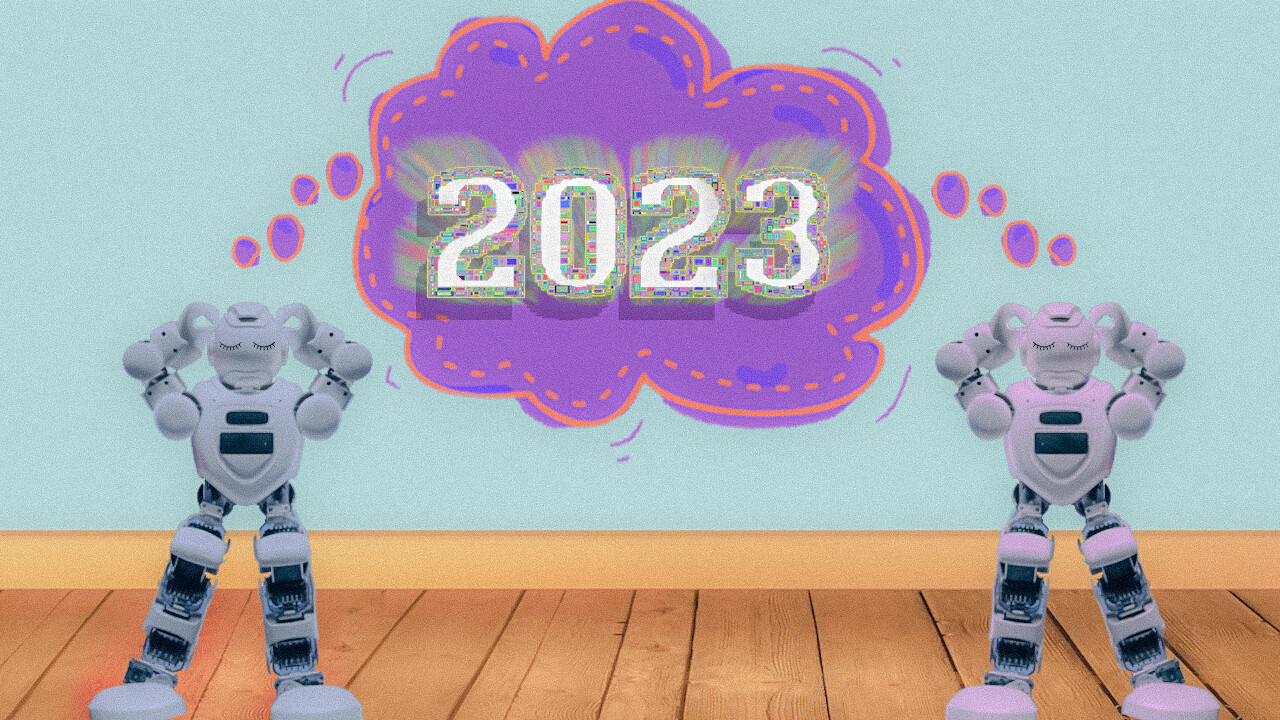
Here we go again! For the sixth year running, we present Neural’s annual AI predictions. 2022 was an incredible year for the fields of machine learning and artificial intelligence. From the AI developer who tried to convince the world that one of Google’s chatbots had become sentient to the recent launch of OpenAI’s ChatGPT, it’s been 12 months of non-stop drama and action. And we have every reason to believe that next year will be both bigger and weirder.
That’s why we reached out to three thought leaders whose companies are highly invested in artificial intelligence and the future. Without further ado, here are the predictions for AI in 2023:
First up, Alexander Hagerup, co-founder and CEO at Vic.ai, told us that we’d continue to see the “progression from humans using AI and ML software to augment their work, to humans relying on software to autonomously do the work for them.” According to him, this will have a lot to do with generative AI for creatives — we’re pretty sure he’s talking about the ChatGPTs and DALL-Es of the AI world — as well as “reliance on truly autonomous systems for finance and other back-office functions.”
He believes a looming recession could increase this progress as much as two-fold, as businesses may be forced to find ways to cut back on labor costs.
Next, we heard from Jonathan Taylor, Chief Technology Officer at Zoovu. He’s predicting global disruption for the consumer buyer experience in 2023 thanks to “innovative zero-party solutions, leveraging advanced machine learning techniques and designed to interact directly and transparently with consumers.” I know that sounds like corporate jargon, but the fact of the matter is sometimes marketing-speak hits the nail on the head.
Consumers are sick and tired of the traditional business interaction experience. We’ve been on hold since we were old enough to pay bills. It’s a bold new world and the companies that know how to use machine learning to make us happy will be the cream that rises to the top in 2023 and beyond.

Taylor also predicts that Europe’s world-leading consumer protection and data privacy legislation will force companies large and small to “adopt these new approaches before the legacy approaches either become regulated out of existence by government or mandated out of existence by consumers.”
The writing’s on the wall. As he puts it, “the only way to make these zero-party solutions truly scalable and as effective as the older privacy-invading alternatives, will be to use advanced machine learning and transfer learning techniques.”
Finally, we got in touch with Gabriel Mecklenburg, co-founder at Hinge Health. He told us that the future of AI in 2023 is diversity. In order for the field to progress, especially when it comes to medicine, machine learning needs to work for everyone.
In his words, “AI is clearly the future of motion tracking for health and fitness, but it’s still extremely hard to do well. Many apps will work if you’re a white person with an average body and a late-model iPhone with a big screen. However, equitable access means that AI-powered care experiences must work on low-end phones, for people of all shapes and colors, and in real environments.”

Mecklenburg explained that more than one in five people suffer from musculoskeletal conditions such as neck, back, and joint pain. According to him, “it is a global crisis with a severe human and economic toll.”
He believes that, with AI, medical professionals have what they need to help those people. “For example,” says Mecklenburg, “AI technology can now help identify and track many unique joints and reference points on the body using just the phone camera.”
But, as mentioned above, this only matters if these tools work for everyone. Per Mecklenburg, “we must ensure AI is used to bridge the care gap, not widen it.”
From the editor of Neural:
It’s been a privilege curating and publishing these predictions all these years. When we started, over half a decade ago, we made the conscious decision to highlight voices from smaller companies. And, as long-time readers might recall, I even ventured a few predictions myself back in 2019.
But, considering we spent all of 2020 in COVID lockdown, I’m reticent to tempt fate yet again. I won’t venture any predictions for AI in 2023 save one: the human spirit will endure.
When we started predicting the future of AI here at Neural, a certain portion of the population found it clever to tell creatives to “learn to code.” At the time, it seemed like journalists and artists were on the verge of being replaced by machines.
Yet, six years later, we still have journalists and artists. That’s the problem with humans: we’re never satisfied. Build an AI that understands us today, and it’ll be out of date tomorrow.
The future is all about finding ways to make AI work for us, not the other way around.
Get the TNW newsletter
Get the most important tech news in your inbox each week.




